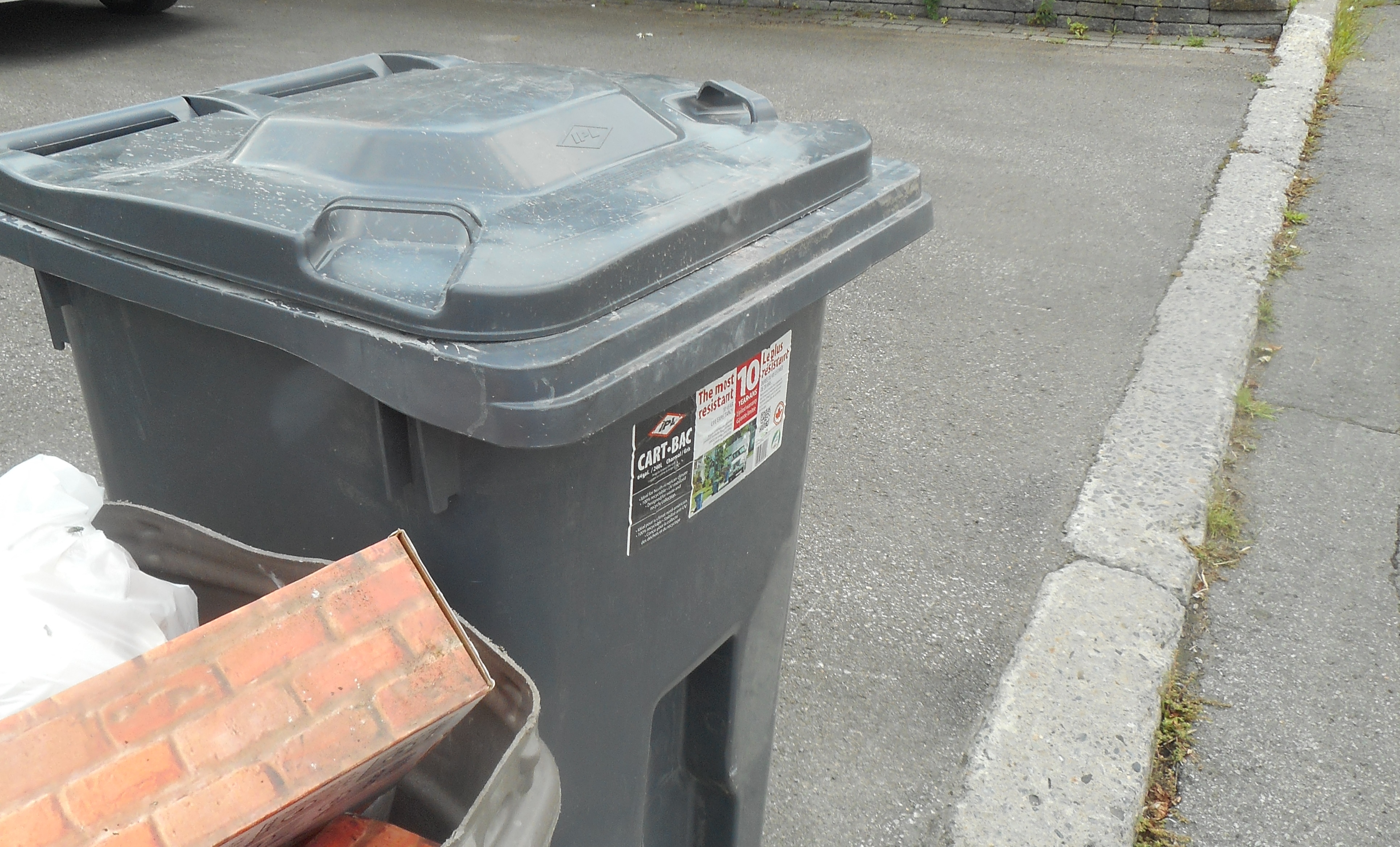Putting out the garbage stresses me out. It’s not because it’s a chore, or because it smells, or because I’m lazy. In fact, it’s not for the reasons that most people might think at all.
It’s because every time I drop a bag into that bin, or drag something to the side of the road for pick up, I think about where it’s going—and am overcome with an incredible amount of guilt (this is worsened by the fact that I am NOT a clutter bug—I clean the house out at least once a month). I think about all of us, swinging our garbage curbside once a week in order to keep our own lives free of clutter. And then my thought travels a little further to the question of “Where does it all end up?” The answer? In the dump, of course. And there it goes, week after week into the abyss, where it piles up, much like a scene in Cloudy with a Chance of Meatballs. According to CBC, Canadians pitched nearly 1700 pounds of waste per person in 2009—which is terrifying. Even compostable containers pose a problem—without light, these so-called eco-friendly items can’t break down, further contributing to the mountain of trash.
So what are the alternatives? How does one live a zero-waste life? Or even a waste-conscious one? It takes effort. From shopping at bulk food stores, to carrying your own tote bags, to opting for Tupperware, there are many ways to reduce how much garbage you produce. Starting a compost bin is a great way to cut down on waste as well, although shopping trips for things like clothing and household items can be tricky, as they are often packaged—which is why many choose to purchase second-hand items. I suppose what I’m trying to say is, even if you change your habits a little (I’m not saying upcycle a storage bin and live off the land or anything, although it is a completely reasonable way to live your life), you can make a big difference. The best part? Planet earth will be better for it.




